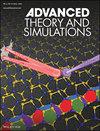使物理-知情神经网络理论-兼容:Fischer - Tropsch催化剂建模的情况
IF 2.9
4区 工程技术
Q1 MULTIDISCIPLINARY SCIENCES
引用次数: 0
摘要
物理信息神经网络(pinn)通过将基于物理的理论与机器学习相结合来加速方程求解。然而,它们在多阶段计算工作流中的应用揭示了可靠性问题。在求解耦合反应-扩散方程的有限差分方法中,利用pinn对源项进行评估,Fischer - Tropsch综合建模证明了这一点。pinn在其输入变量范围边界附近逼近函数时的细微不准确性,而传统的神经网络评估方法无法捕捉到,会导致非物理的最终解和收敛失败。提出了一种针对特定问题的PINN架构,该架构具有正确的渐近行为并解决了所揭示的问题。结合定制的初始猜测生成方案,所提出的修改被证明可以恢复模拟的整体稳定性,同时保留pinn作为工作流组件带来的速度。在化学反应器模拟的背景下,讨论了所提出的混合求解器的可能应用。本文章由计算机程序翻译,如有差异,请以英文原文为准。
Making Physics‐Informed Neural Networks Theory‐Compliant: The Case of Fischer‐Tropsch Catalyst Modeling
Physics‐Informed Neural Networks (PINNs) accelerate equation solving by merging physics‐based theories with machine learning. Yet, their application in multi‐staged computational workflows unveils reliability issues. This is demonstrated for Fischer‐Tropsch synthesis modeling, by leveraging PINNs for source terms evaluation in the finite‐difference method solving the coupled reaction‐diffusion equations. Subtle inaccuracies of PINNs approximating the functions in close vicinity of their input variables' ranges boundaries, while not captured by traditional neural network assessment methods, are shown to induce unphysical ultimate solutions and convergence failures. A problem‐specific PINN architecture is proposed that has a correct asymptotic behavior and resolves the revealed issues. Combined with a tailored initial guess generation scheme, the proposed modifications are shown to recover the overall stability of the simulations while preserving the speed‐up brought by PINNs as the workflow component. The possible applications of the proposed hybrid solver are discussed in the context of chemical reactor simulations.
求助全文
通过发布文献求助,成功后即可免费获取论文全文。
去求助
来源期刊

Advanced Theory and Simulations
Multidisciplinary-Multidisciplinary
CiteScore
5.50
自引率
3.00%
发文量
221
期刊介绍:
Advanced Theory and Simulations is an interdisciplinary, international, English-language journal that publishes high-quality scientific results focusing on the development and application of theoretical methods, modeling and simulation approaches in all natural science and medicine areas, including:
materials, chemistry, condensed matter physics
engineering, energy
life science, biology, medicine
atmospheric/environmental science, climate science
planetary science, astronomy, cosmology
method development, numerical methods, statistics
 求助内容:
求助内容: 应助结果提醒方式:
应助结果提醒方式:


